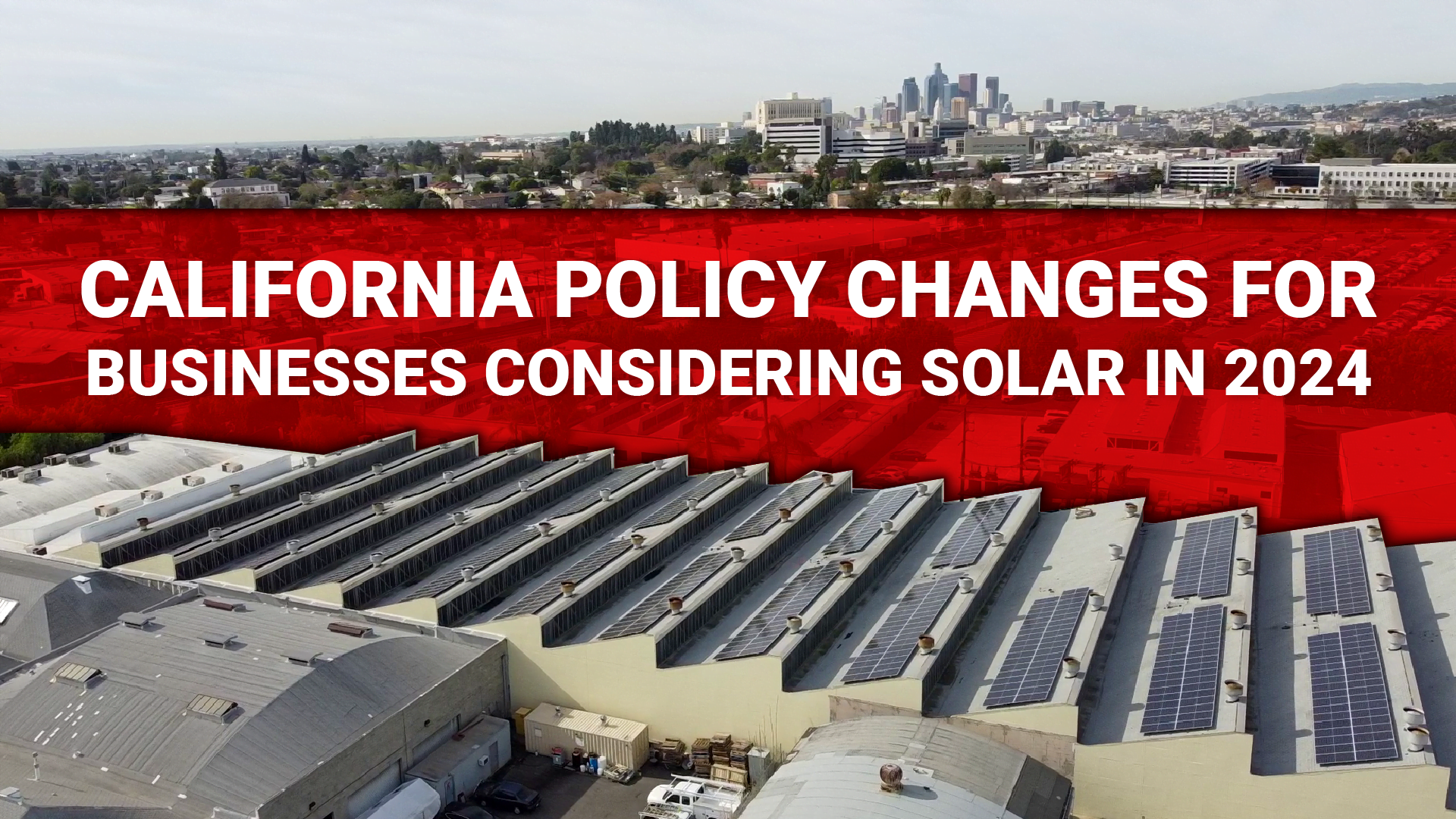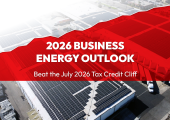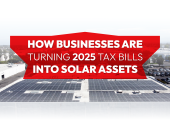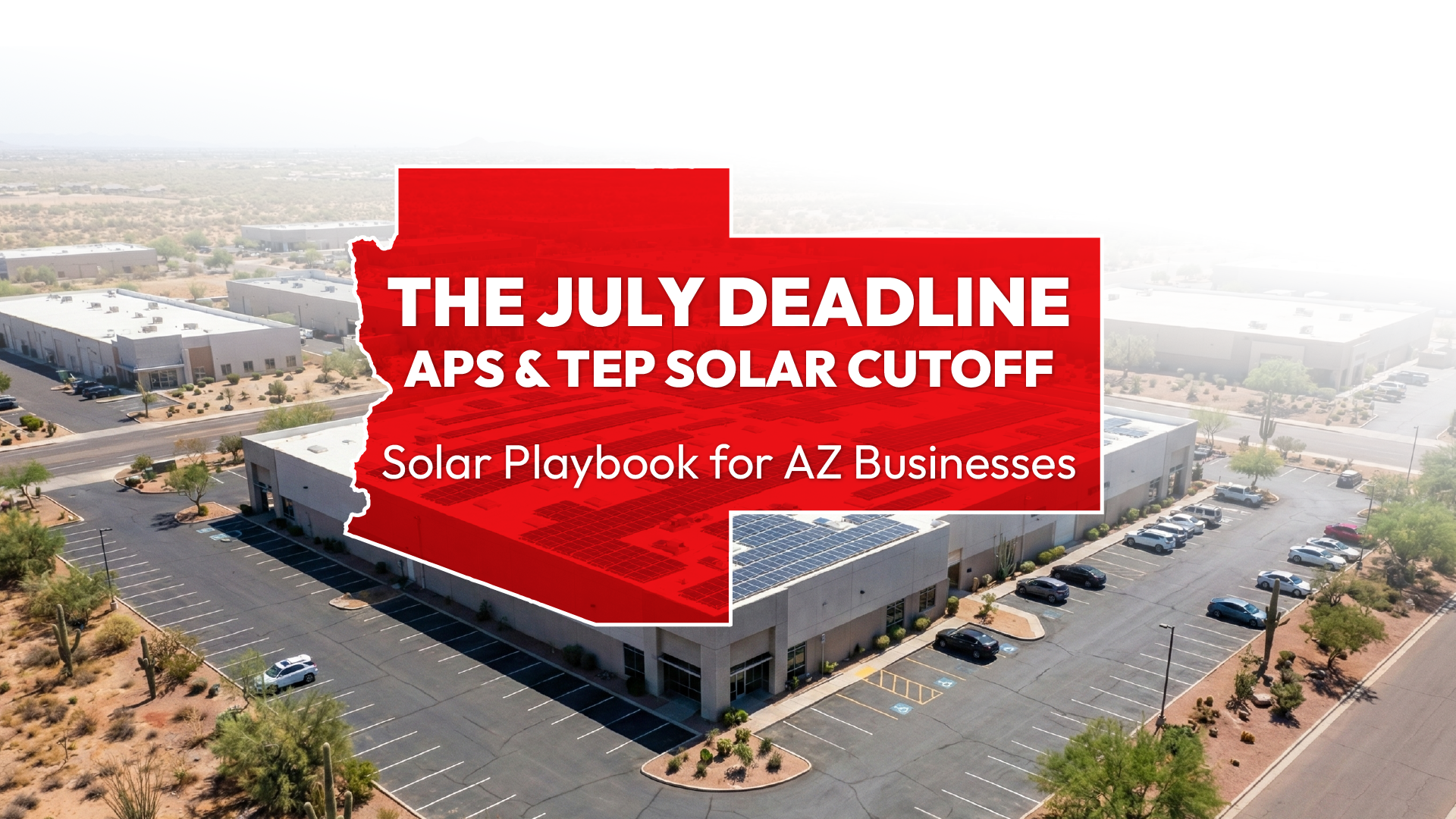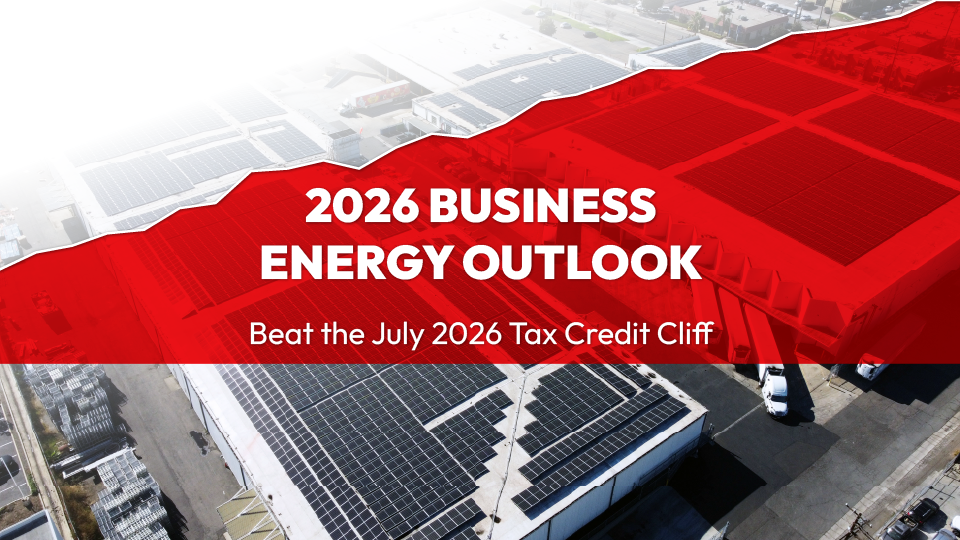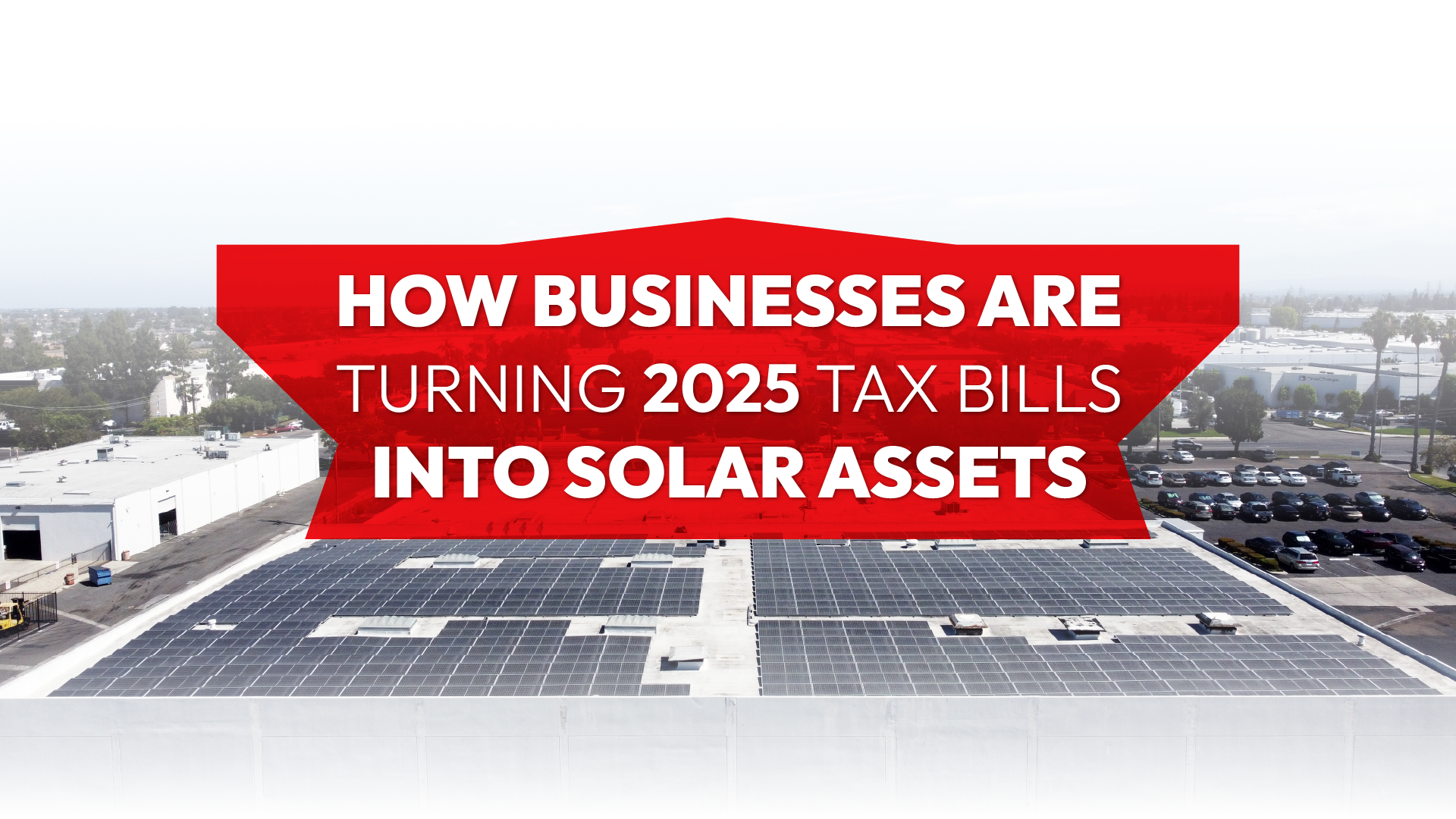California Policy Changes for Businesses Considering Solar in 2024
Changing programs and policies in 2024 could potentially impact California businesses considering commercial solar and energy storage systems. These changes include the CEC requiring solar + storage in the updated building code, increased air quality management controls for warehouses, new prevailing wage requirements for California IOU area and larger projects taking the ITC.
Projects starting in 2023 in IOU territory are also under new NEM 3 / net billing rules that reduce the value of electricity sent back to their utility, specifically for SCE, SDGE and PGE customers. The changes to NEM for IOU customers is an effort to push more residents and businesses towards energy storage, as reserving excess generation becomes more valuable than exporting it back to the grid.
There are various changes on the horizon for California’s solar industry as more businesses and residences alike choose to sustainably generate their own energy, in an effort to reduce future increases on their electricity bills.
Benefits of Commercial Solar PPA Facing Policy Changes
California’s sustainability goals for reducing carbon emissions are starting to come at the cost of industries experiencing whiplash trying to keep up while adapting to the changing climate. Electricity rates have risen across all industries, investor-owned and municipal utility providers are sending increasing monthly bills to customers, pushing many businesses to find more sustainable solutions.
Businesses throughout California are using a financing method called the power purchase agreement (PPA) to install sustainable technology like commercial solar on rooftops or in parking lots before changes to state policies in 2024 that will increase costs of all future projects. This financing option is designed for facilities with high electricity costs, but without the budget for capital expenditure, our Revel Solar PPA allows businesses to use their already budgeted operational expenses to pay for their own local sustainable energy source.
The US solar industry was reported to have its best Q1 ever in 2023, and that growth will continue as businesses notice their competitors are capturing serious savings while they’re spending more and more on electricity bills. If your business is considering sustainable technologies like commercial solar, contact us today to learn more about our solar power purchase agreement program.
California Energy Commission Requires Solar Plus Storage on New Builds and Retrofits
As we’ve covered before, California became the first state to require both solar PV and energy storage systems on all new and some retrofit commercial buildings, as the California Energy Commission (CEC) updated their 2022 Building Energy Efficiency Standards.
This solar plus storage mandate is already in effect for the following commercial properties; grocery, high-rise multifamily, office, financial institutions, unleased tenant space, retail, school, warehouse, auditorium, convention center, hotel/motel, library, medical office, building/clinic, and theaters.
Depending on variables established in the CEC’s guidance, some developments may be exempt due to available space or other requirements. As the solar industry continues to grow, this mandate will accelerate that expansion causing costs for procurement, labor and interconnection to increase as well.
Prevailing Wage Requirements for California Solar Projects in 2024
California passed AB 2143 which considers all construction of renewable electrical generation facilities that use net metering in an IOU territory (SCE, PGE & SDGE) to be considered a public works project. While more guidance is required to determine just how many public works project requirements will apply to renewable installations, prevailing wage requirements were at the heart of the bill.
In addition to AB 2143, the Inflation Reduction Act includes new prevailing wage requirements to reach the full 30% value of the credit for large projects. For projects over 1MW, contractors with four or more workers on a job site must employ apprentices for a certain number of labor-hours and pay prevailing wages to all workers to receive the full tax incentive.
Project contractors are responsible for completing and thoroughly documenting these new requirements with California’s two separate offices through the department of labor, and the department of industrial relations. While this change may benefit the industry in the long-term, this new added layer of complexity requires more time, effort and therefore costs to complete.
These prevailing wage requirements are for projects that start construction in 2024 for new projects within IOU territories or larger than 1MW taking the ITC. These new rules are expected to increase costs for many potential renewable energy installations in California including power purchase agreements, as the financier is taking the tax credit instead of the owner of the system.
California Commercial Business Climate Warming Up to the Solar PPA
Commercial solar in California has grown quickly as the state continues its legacy of supporting sustainable policies and programs. Solar for businesses has proven itself as a property improvement that quickly provides return on investment. While typically done through a cash purchase or bank financing, power purchase agreements have become a necessary alternative for businesses without the up-front capital.
Instead of a capital expenditure to own a commercial solar system, the Revel Solar PPA allows businesses and REITs alike to use their already budgeted operational expenses to pay for their own sustainable energy source – reducing demand from their utility provider and keeping cash in the business.
As more businesses install solar panels in California, more may have to face higher installation or interconnection costs as infrastructure improvements will likely be required, but not paid for, by utility companies. Contact our expert team today to learn if the Revel Energy Solar PPA can help your business create capital through sustainability.

Commercial grade rooftop solar is ideal for: manufacturing, warehousing, logistics, industrial, retail, hospitality buildings and more with over 10,000 sq. ft. rooftops.
CARPORT SOLAR
Free standing carport solar generates added solar power for properties with limited rooftop space. Added benefits include shading and protection for employees vehicles.
Crucial for reducing peak demand charges. Automated to supply electricity when your panels won’t. Energy storage is ideal for businesses that incur significant peak charges.
As the popularity of electric vehicles increase, so does the demand for on-site charging. This sustainable amenity has become a parking lot fixture for competitive employers.
OUR SERVICES
TURNKEY COMMERCIAL GRADE SOLAR, ENERGY STORAGE, LED LIGHTING AND MORE.
PROFESSIONAL GUIDANCE
CUSTOM TAILORED PLANNING
CONSTRUCTION & INSTALLATION
CSLB #1106092
Client Testimonial: Kelemen Company
Corporate Business Park in Irvine, CA has created significant electricity cost savings through commercial solar installed across the 5-building business park.
Client Testimonial: Tice Gardner & Fujimoto LLP
See how this CPA firm saved on electricity and gained valuable tax credits through commercial solar that they used to keep cash in the businesses.

